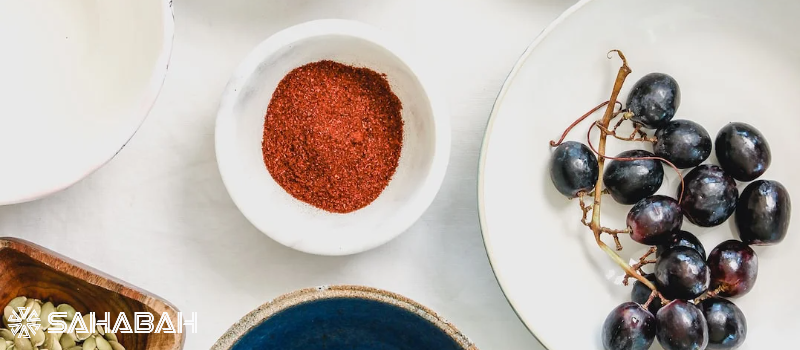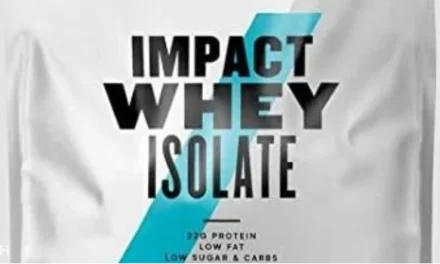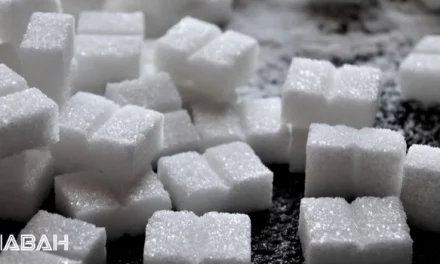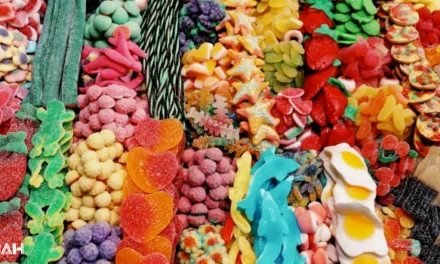E120, known also as carmine or cochineal extract, has emerged as one of the most hotly debated food additives regarding its halal status for Muslims. This natural red coloring derived from insects is widely used across candy, yogurt, juice drinks, protein powders, cosmetics and other products to produce vibrant shades of red, pink and purple.
But does E120 align with Islamic dietary guidelines or does consuming it violate religious restrictions? Halal certification and permissibility of E120 remains a topic of intense debate and conflicting rulings.
This comprehensive guide will analyze all aspects of this controversy to answer pressing questions devout Muslims may have, including:
- What is E120 carmine and how is it manufactured?
- What are the Quranic principles and halal standards concerning food additives?
- Why do some Islamic interpretations deem E120 haram?
- What evidence counters it can be halal under certain conditions?
- How do halal rulings vary across different Islamic madhhabs?
- What E120 halal certification challenges persist?
- How might improved labeling resolve confusion?
- What alternative natural red food colorings exist?
Examining multiple perspectives on these issues can hopefully provide clarity for Muslim consumers on whether E120 abides by or violates halal guidelines.
Understanding E120 Carmine Food Coloring
E120 goes by multiple alternate names including:
- Carmine
- Cochineal extract
- Carminic acid
- Natural Red 4
- C.I. 75470
It consists of a pigment called carminic acid extracted from the dried female cochineal insect, Dactylopius coccus. This small parasite-like scale bug feeds exclusively on cacti plants.
To produce carmine pigment on an industrial level, these scale insects are carefully cultivated and dehydrated. Their remains are then boiled in an aqueous solution, producing carminic acid which can be further chemically altered to specification.
The extracted carminic concentrate is combined with aluminum or calcium salts to form a stable red coloring, E120. This natural dye lends its vibrant reddish-purple hue to a vast array of foods including:
- Yogurts
- Ice cream
- Juices
- Energy drinks
- Jellies/jams
- Candy (especially gummies)
- Icing
- Fruit fillings
- Protein powders
Along with coloring foods, carmine is extensively used in cosmetic products like lipsticks, blushes and eyeshadows.
But with cochineal extract E120 being derived from insects, confusion persists around whether it meets Islamic halal classification guidelines or should be deemed haram.
Quranic Principles on Permissible Foods & Additives
Halal translates in Arabic to “permissible or lawful” within Islamic dietary restrictions outlined primarily in the Holy Quran. The opposites of halal are haram (prohibited), makruh (discouraged), and mushbooh (questionable).
For a food substance like E120 color additive to be definitively classified as halal, it must comply with established Islamic legal precepts. Scholars derive rulings on modern foods not expressly mentioned in the Quran based on these guidelines:
Lawful Land Animals Properly Slaughtered
- Must invoke the name of Allah before slaughter
- Should sever trachea, esophagus to drain blood
“Forbidden to you (for food) are: carrion, blood, the flesh of swine…” (5:3)
Lawful Sea Animals
- Permits consumption of fish & seafood with scales/fins
- Excludes aquatic mammals like crocodiles, frogs
“Lawful to you is game from the sea and its food as provision for you and the travelers…” (5:96)
No Filthy or Harmful Substances
- Cannot consume impure, unsafe, or toxic products
- Risk of disease transmission
“He has forbidden you only carrion, and blood, and flesh of swine…” (16:115)
As we’ll explore next, debate centers on which principles should determine E120’s classification given it doesn’t clearly fit traditional categories.
Reasons Why E120 May Violate Halal Integrity
Several factors suggest E120/carmine coloring produced through standard methods fails to satisfy Islamic halal standards:
1. Shariah Prohibition Against Consuming Insects
Eating insects has traditionally been deemed haram based on this hadith in Sunan Abi Dawud:
“Allah’s Messenger (صلى الله عليه وسلم) prohibited the eating of insect pests…the killing of locust is allowed and eating it is lawful.”
So while orthodox rulings permit only locusts among insects, the Dactylopius coccus cochineal variety used in E120 manufacturing is still a scale bug creature according to entomologists.
More traditional clergy argue that since Muslims cannot directly eat or kill cochineal insects, extracting carminic acid coloring from their remains equally constitutes unlawful handling of an impure creature.
They cite these verses on avoiding contamination:
“Eat not (O believers) of that meat on which Allah’s Name has not been pronounced (at the time of the slaughtering) for sure it is disobedience (fisq). And certainly, the devils do inspire their friends to dispute with you, and if you obey them, you would indeed be a polytheist.” 6:121
However, some modernist voices counter that the cochineal is mutated and not truly an insect anymore. They argue only direct physical consumption is what such hadith prohibit. Deriving additive from previously slaughtered scale bugs should not pose inherent halal violations.
We’ll analyze more of this debate around classifying E120’s insect origins later on.
2. Risk of Non-Halal Extraction Methods
Standard E120 / carmine production can utilize various solutions:
- Water – Boiling cochineal bodies in H20 most common
- Alcohol – Ethanol, methanol and other solvents
- Acids – Citric, acetic, or tartaric acid
Issues arise depending on extraction methodology, as alcohol definitely and acids possibly introducing impurity.
Halal standards generally mandate:
- No alcohol should come into contact with production
- Acids also risk making end products haram
Yet the problem remains that manufacturers rarely disclose exact methods. Muslims have no definitive way to verify if an impermissible process contaminated E120 coloring in common candy, dairy or cosmetics.
3. Absence of Oversight Risks Cross-Contamination
Even if Honeypet Foods extracts its E120 utilizing only steam distilled water, their facilities may handle haram items without disclosing it. Or batch mixing equipment could transfer traces of alcohol-extracted cochineal or gelatin from shared pipes and vats.
Such potential exposure to forbidden substances gravely concerns more conservative halal consumers. But certifying agencies largely cannot mandate entire plant-level compliance beyond a single approved product not contacting inappropriate ancillary items. We’ll explore various organizations’ certification criteria further below.
In summary, these compounding ethical issues illustrate why many Muslims advocate fully avoiding insect-derived E120 color pending more transparent manufacturing procedures.
Next we’ll examine counterarguments that carmine can qualify as halal under select conditions.
Conditional Permissibility for E120 to Be Halal Certified
Despite potentially valid criticisms, a growing consensus acknowledges carmine could permissible given precise standards enforcement. Consider the following evidence:
Taxonomy Argument: Cochineals Not True Insects
Credible scholars like the influential Dr. Yusuf Al-Qaradawi note that while conventional bugs are certainly haram, the mutated scale insect debatably no longer fits zoological insect definitions. So it avoids explicit Quran prohibitions.
Key Points:
- Quran verses do not expressly forbid cochineal extract or modern food additives
- Carmine not chemically identical to traditional locusts or winged bugs
Therefore, some rule the excretions of an invertebrate pseudo-insect may be legally processed into permissible E120 coloring if properly filtered for purity.
Context Principle: No Direct Consumption Occurs
Even conservative madhhabs concur that indirect benefiting from forbidden animals is not totally equivalent to willfully eating haram meat.
For example Islamic finance avoids pork industry investment but allows modern medical use of their byproducts. Scholars apply similar logic of separation degrees to E120:
- Muslims are not directly eating or killing cochineal insects
- Chemical extract isolated during processing alters inherent nature
This means that while killing and cooking bugs would be haram, derivatives like carminic acid from previously deceased scale insects get a conditional exemption through multiple abstraction layers.
Scientific Assurances of Toxin Removal
The FDA along with European Food Safety Authority have affirmed carmine safe for consumption in purified form. Potential impurities or pathogens get eliminated using:
- Heat reaching 180 °F
- Microfiltration removing bacteria
- Ion exchange filtration eliminating metals, amines and poor solubles
Such rigorously controlled conditions mean E120 meets Quran cleanliness standards. Any haram aspects present in the insect raw state no longer exist in finished halal-approved carmine.
In summary, these credible rationales give latitude that properly handled E120 can comply with Islamic integrity principles for Muslim consumers through careful oversight mechanisms.
Madhhabs & Locales Greatly Differ in E120 Fatwas
Islamic jurisprudence schools issue various edicts on the exact halal legal status of cochineal-derived additives which we’ll analyze in-depth here.
Permissible Rulings Among Major Madhhabs
Hanafi Sunnis – This largest maddhab led by deobandi subcontinent scholars gives expansive leniency regarding synthesized colors. They permit ADI-approved E120 unconditionally based on it chemically transforming.
Shafi’i Sunnis – Dominant in Malaysia and Indonesia, they allow E120 from plants with dedicated halal procedures. But alcohol as extraction solvent absolutely prohibits permissibility.
Maliki Sunnis – North African centric rulings prohibit all insect derivatives as unlawful innovation (bid’a) violating the Prophetic Sunnah. But someMaghrebi judges make exception for scale bugs if scientifically verified pure.
Hanbali Sunnis – This strict Saudi & Qatar school bans insects yet conditionally allows certain chemical alterations like with medication. So some Wahhabi groups reject E120 while others require exhaustive lab verification it contains no insect particles.
Regional Fatwas Significantly Vary
Beyond madhhab inconsistencies, national laws also conflict:
Saudi Arabia – E120 decisively banned in 2015 as sacrilege. All domestic & imported candies containing carmine get confiscated.
Indonesia – Fully certified permissible including alcohol-filtered if unavoidable. Considered automatically halal since no clear textual evidence proves otherwise.
Turkey – Allowed only with kosher certification but still causes skepticism so often gets substituted with plant colors.
India – Semiofficial edicts argue exemption based on Hanafi citizenship rules prioritizing community harmony over strict readings.
United Arab Emirates – Modernist Emirati class rulings greenlight E120 but imported products require case-by-case review before retail authorization.
This complex diversity of institutional fatwas means average Muslims struggle knowing whether a given candy or lipstick with E120 qualifies as halal or haram. Geographic dynamics further complicate matters.
Now that we’ve covered the broad disagreement between interpretations, we’ll analyze pressing economic and supply chain issues giving this controversy momentum.
Opaque Carmine Supply Chains Cause Halal Certification Abuse
Beyond abstract theological debates, tangible accountability failures also debase the E120 halal integrity assurance process. These include:
1. Conflicts of Interest Undermine Oversight Credibility
When Malaysian politicians also operate lucrative palm oil plantations, they often ruled laxly on which extractor solvents qualify as haram. Clientelist palm certification outfits then conveniently approve E120 facilities utilizing questionable methods, eroding public trust.
Agencies find loopholes like allowing 95% ethanol alcohol extraction while disingenuously still labeling resultant colors as halal. Such distorted oversight diminishes confidence in entire supervision ecosystem integrity.
2. Porous Import Regulations Allow Deceptive Practices
Given fractured global standardization, nothing prevents an Indian producer from labeling candy exports as “Halal-Certified E120” after checking only their specific facility. Yet the algae-fed cochineals may have come from a Chinese farm using haram feeding supplements or handling practices.
Once imported with just a halal stamp, Muslim-majority countries lacking supply chain transparency then have no means to verify actual adherence. This leads to rampant mislabeling with inconsistency between claimed halal integrity and on-the-ground manufacturing reality regarding E120.
3. Reform Resistance Perpetuates Confusing Status Quo
The Organization of Islamic Cooperation periodically attempts advancing unified food coding best practices. But disparate national interests thwart progress towards consistency. Malaysia for example refuses any clauses restricting palm oil deforestation practices. Powerful lobbyists overwhelm religious imperatives.
This stagnation in clarifying policy fosters continued dubious quality guarantees. Consumers lack tools to make truly informed decisions regarding which E120-containing products align with their halal standards.
In summary, political economic obstacles compound ambiguity on whether carmine complies with Islamic integrity. Next we’ll highlight labeling critiques that similarly confuse Muslim shoppers.
Generic E120 Labeling Critically Limits Purchasing Transparency
Given obscured supply chains, enhanced consumer-facing informational standards become necessary so Muslims can determine appropriate risk tolerance.
Yet widespread product listing vagueness hinders shoppers from reasonably vetting any candy or makeup for halal avoidance. Random examples across British and American brands include:
Trolli Sour Brite Crawlers Ingredients:
Sugar, Corn Syrup, Citric Acid, Palm Oil, Coloring (E120), Flavoring, Extract of Capsicum, Carnauba Wax
L’Oreal Brilliant Eyeshadow Components:
Mica, Talc, Octyldodecyl Stearoyl Stearate, Ethylhexyl Palmitate, Silica Dimethyl Silylate, Carmine CI 75470, Tin Oxide.
Such opacity on whether production involved alcohol or other contamination makes it impossible for Muslims adhering to Quranic principles of moderation and purity to exercise responsible judgement:
‘O ye who believe! Make not unlawful good things which Allah hath made lawful for you, and transgress not. Lo! Allah does not love the transgressors.’ (5:87)
Proposed enhanced designation include:
- E120 (carmine-halal)
- E120 (carmine-alcohol-free-halal)
- E120 (non-halal)
But regulatory cooperation struggles continue delaying transparency implementation.
Finally, let’s analyze natural coloring alternatives pious Muslims can opt for instead.
Viable Plant-Based Natural Food Coloring Alternatives to Carmine E120 Risks
Rather than navigate the risks posed by questionable E120 halal integrity, devout Muslim consumers can instead choose from various safer plant-derived coloring alternatives including:
Beetroot Powder – Vibrant red hue perfect for drinks, cereals, confections. Cheap, non-controversial.
Radish Extract – Red-purple tint ideal for sauces, salad dressings. Higher cost but avoids haram.
Rose Water – Pinkish tones work well in desserts, beverages. Specific cuisines.
Hibiscus Flowers – Intense red/violet coloring great for teas, jams, jellies.
Strawberries – Delicious light red accent for anything!
These and other natural substitutes help Muslims honor religious principles by avoiding unnecessary gray area substances. While cost and specific hues vary slightly, these organic options enable adhering to Quran guidance:
‘Eat of what is lawful and wholesome on the earth.’ (2:168)
So by selecting transparently permissible alternates, Muslim consumers can take faith-aligned stances through their purchasing choices.
Key Takeaways & Fatwa Recommendations on E120 Halal Status
Evaluating multiple angles and interpretations within this carmine controversy leads to a few concluding guidances this author would issue to inquiring Muslim consumers:
-
Avoid mainstream E120 unless verifiably certified halal to resolutely prevent potential ingestion of haram substances. Too much uncertainty exists.
-
Reduce overall consumption of highly processed foods using questionable additives like carmine colors whether halal-certified or not. Choosing more natural wholesome nutrition aligns better with Prophetic Sunnah.
-
Pressure national regulators through consumer advocacy to implement enhanced supply chain transparency regulations so Muslims can make properly informed decisions about risks of products containing E120 and other additives.
-
Support voluntary ban adoption by multinational food producers on exploiting gray areas that could violate halal integrity or consumer trust. This follows the example of Nestle removing carmine from its global product palette.
-
Switch to alternates like beet powder colors to avoid stepping into questionable territory while still enjoying vibrant safe hues.
In closing, the pillars of Islam revolve around cultivating personal discipline, good faith and righteousness within society. Muslims owe adherence first to revelations in the holy texts, and secondly to community standards of those respected as people of knowledge.
By proactively avoiding spiritual gray zones like with additives such as highly processed E120 carmine – while channeling such abstentions into positive civic participation – the global ummah can manifest the true essence of God consciousness.
Frequently Asked Questions – Is E120 Halal
What is E120 and why is it a concern for Muslims?
E120 is a food additive known as carmine, cochineal, or crimson lake, and it is used as a natural red colorant in food and cosmetics. It is a concern for Muslims because it is derived from insects, particularly the cochineal insect, and there is debate among Islamic scholars about its permissibility according to halal dietary guidelines.
Is E120 halal or haram according to Islamic dietary guidelines?
The permissibility of E120 (carmine) is a subject of debate among Islamic scholars. Some consider it halal, while others consider it haram due to its insect-derived nature. As a result, opinions on this issue may vary within the Muslim community.
What does the Quran say about consuming E120?
The Quran does not explicitly mention E120 or the use of insect-derived additives. Therefore, the issue of whether E120 is halal or haram is not directly addressed in the Quran.
Is E120 made from insects and what is the process involved?
Yes, E120 is made from insects, specifically the female cochineal insects. The process involves harvesting these insects, drying them, and then crushing them to extract the red pigment used in a variety of products.
Are there alternatives to E120 for Muslims who prefer halal food products?
Yes, there are alternatives to E120 that do not contain insect-derived ingredients. Some halal-certified food companies use plant-based or synthetic red colorants as substitutes for E120 in their products.
How can Muslims determine if a product contains E120?
Muslims can check the ingredient list of food and cosmetic products for E120 or its code (E120) to identify if it contains the additive derived from insects.
What are the key considerations for Muslims regarding the use of E120 in food and cosmetics?
Muslims need to know the source of E120 used in products to determine if it is derived from halal or non-halal sources. They should also consider consulting with a halal authority or scholar to make informed decisions when purchasing products containing E120.
Can E120 be used in vegetarian or vegan products?
E120 is not suitable for vegetarian or vegan diets as it is derived from insects. Individuals adhering to vegetarian or vegan lifestyles should seek alternative red colorants in products.
What regulations or assessments exist regarding the safety of E120 for consumption?
The European Food Safety Authority (EFSA) has conducted assessments on the safety of E120 as a food additive, considering its potential risks and exposure to consumers. These assessments provide valuable information for regulatory bodies and consumers.
What are the common products in which E120 is used?
E120 is used in a variety of products including fruit beverages, dairy products, confectionery, desserts, and cosmetics to impart a bright red color. Consumers should be mindful of its presence when purchasing or using these items.





